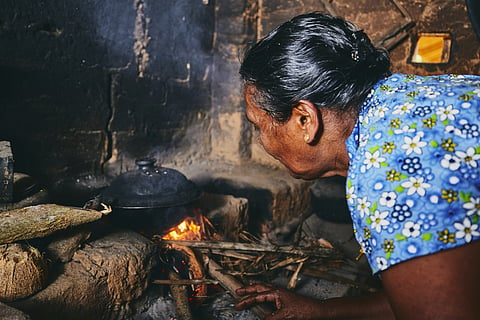

Electrification rate hits 98.6% in 2023, leaving 50 million still without power
Rural households face unreliable supply and affordability challenges despite grid access
Clean cooking access at 78.9%, with nearly one billion reliant on biomass, charcoal and kerosene
Renewable capacity tripled in a decade, but share of total energy supply remains just 16.3%
UNESCAP calls for urgent policy, finance and innovation to meet SDG 7 targets
The Asia-Pacific region is on course to achieve universal electricity access by 2030, marking a major milestone for global sustainable development. But progress on other critical energy goals is faltering, the United Nations Economic and Social Commission for Asia and the Pacific (ESCAP) has warned.
ESCAP’s Regional Trends Report on Energy for Sustainable Development, titled Transforming energy systems for a low carbon future in Asia and the Pacific was released on September 3, 2025. It found that while electrification is nearing completion, renewable energy growth remains too slow, efficiency gains are stalling, and clean cooking continues to be neglected.
The region’s electrification rate rose to 98.6 per cent in 2023, leaving around 50 million people still without power. Urban access is almost universal, while rural coverage has reached 97.4 per cent.
However, the report stressed that millions of households face unreliable supply, frequent outages and affordability constraints despite being grid-connected. The UN body cautioned that the Sustainable Development Goal (SDG) 7 indicator counts connections but does not measure availability, reliability or cost. These gaps, it said, are vital to ensuring electricity access translates into real socioeconomic benefits.
“Improving the multiple dimensions of energy access must continue to be a priority for national governments, even after universal access through physical electricity connection is achieved,” the report stated.
In contrast to electricity, access to clean cooking fuels and technologies remains inadequate. While coverage has risen from 38 per cent in 2000 to 78.9 per cent in 2023, nearly one billion people in the region still rely on polluting fuels such as biomass, charcoal and kerosene.
Rural households are worst affected: Only 63.6 per cent use clean cooking compared with over 92 per cent in cities.
The report underscored the serious health and social consequences of this divide. Household air pollution from traditional fuels is a leading cause of premature deaths, with women and children most affected. Women and girls also carry the burden of collecting fuel and spending long hours cooking with inefficient stoves, limiting education and economic opportunities.
Without urgent action, the region risks missing the 2030 universal clean cooking target, ESCAP warned. It called for government incentives, infrastructure investment, behaviour change campaigns and innovations such as electric cookstoves.
The region has become the global centre of renewable energy expansion. Installed renewable electricity capacity grew from 568 gigawatts (GW) in 2013 to 1,785 GW in 2023, with per capita capacity tripling from 151 watts to 451 watts. Falling solar PV and wind costs have driven much of this growth.
Yet renewables still make up only a small part of the overall energy mix. Their share of the region’s total energy supply increased only marginally, to 16.3 per cent in 2022, while modern renewables accounted for just 11.2 per cent of final energy consumption.
ESCAP said this reflects a “structural paradox”: Surging demand in industry and transport that renewables cannot keep pace with and declining reliance on traditional biomass, which lowers the overall share of renewables in the energy balance.
Fossil fuels still account for about 85 per cent of the region’s supply, with coal dominating power generation in several economies. Renewable uptake in heating and transport remains minimal.
ESCAP urged governments to create enabling conditions for renewable and efficiency investment through clear policies, financial incentives and mobilising climate finance. It called for integrated, long-term energy planning aligned with climate targets and modernisation of grids, storage and off-grid solutions.
“Asia-Pacific has made remarkable strides in electrification, but unless we tackle clean cooking, efficiency and renewable integration with the same urgency, the region will fall short of its sustainable energy commitments,” said Armida Salsiah Alisjahbana, ESCAP’s Executive Secretary in a press statement. “A just and inclusive transition — one that benefits women, youth and vulnerable groups — must be at the heart of this effort.”
The report also emphasised the importance of making the transition just and inclusive by ensuring women, youth and marginalised groups are involved through training and leadership opportunities. Regional cooperation, knowledge-sharing and alignment of national strategies with climate goals were also listed as priorities.
Finally, the UN agency underlined the role of emerging technologies, urging governments to scale up pilot projects, boost research and development and foster innovation ecosystems tailored to national contexts.
“Achieving SDG 7 in Asia-Pacific will require not just supply-side investments, but also demand-side measures and systemic reforms,” the report concluded.